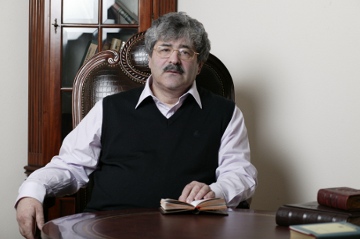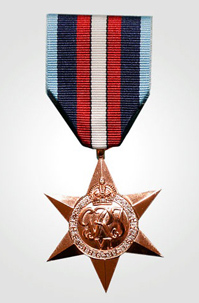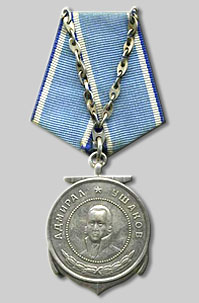
“In England, everything is possible, and at the same time nothing is possible in England, " a lady from Russia sophisticated in British affairs once said to me. Here is another aphorism: "England is divided into two parts - the very rich and those who serve them." For this reason, for the rich and very rich Russians, Britain is the Promised Land, and not only because of its reputation as a world financial center.
Of course, the first aphorism does not mean that the rich can afford everything and the poor - nothing. England has not fallen that low. It is, rather, that the quaint regulations, rules and many different kinds of certification regulate nearly every aspect of life, giving everything a purely British flavor.
What I can say in this context, in contrast with Russia, is that the idea of anarchy has no chance of mastering the English mind. All the tracks are laid, and the movement is programmed to perfection, and only a crisis can make any adjustments to such a rational mindset for life. You might have been told: "In the UK it is so, and so ..." "Oh! - You exclaim. Really?" And you are unwittingly held hostage by the English mentality that draws you to its labyrinth, just as quickly as the well led Alice in to Wonderland.
One European entrepreneur in the real estate market angrily grumbled that you can’t buy a house or an apartment in England for more than 99 years. "I was told, it will be sufficient for your lifetime and also for your children. But what about grandchildren and great-grandchildren?" Perhaps the British have a different approach to future generations, more spartan so to say. Your children will be all right, and the grandchildren and great-grandchildren should take care of themselves.
I suspect that this case is not without borrowing from history - in fact in the Old Testament it was forbidden to sell land with an ownership of more than 50 years. Or could it be perhaps the echoes of fierce fighting with landlords and aristocrats who have managed to bargain the right to return to their grandchildren that which had fallen from their hands? Or perhaps everything is more simple, and we are dealing with the same elusive and hard to translate “British understatement”, which particularly distinguishes the British sense of humor.
However, the regulations often produce unpredictable results for particular people in particular circumstances. It took over 60 years for Britain to appreciate the extraordinary feats of the Arctic convoys, establishing a special medal, the "Arctic Star". "It was well known as the worst of all journeys in the history of the world", as Winston Churchill described the route from the shores of Albion to Murmansk.

In June, the British Foreign Office finally lifted the ban on the awarding to sailors, who sailed this deadly dangerous route, while sailors from the U.S., Australia and Canada who were members of these convoys, received their awards long ago. In June this year, Vladimir Putin and David Cameron officially presented twenty British veterans with the Medal of Ushakov.

For some unknown reason, the British government has yet to award the surviving veterans, whose ranks are rapidly diminishing. What can be the demands for secrecy that can be applicable to people who are 80, 90 or even more years of age? The “hell runners” route called Churchill the journey that the ships took on the way to Russia, often forever taking away the lives of thousands of sailors from their home shores.
One veteran told the “Independment”: "The worst scenario was when a German U-boat managed to get inside the convoy. But the weather posed more of a risk. Huge waves threw the ships into the air so that they stood upright like a candle. Salt froze and turned to ice, making the upper part of the ship very heavy and threatening to turn it upside down. The frozen salt had to be removed with simple picks. At the same time the tanks being carried would tear free from their fastenings, and "once free", often breached the hull of a ship. "There is an interesting historical detail: the members of the crew utterly exhausted physically and mentally, were strictly forbidden to go onshore. Their "ideological chastity" was protected by special guards who lined them up on the lower decks.
Today, in peaceful times, despite the cool relations between Moscow and London, UK exports of goods and services to Russia have grown by 75 %: from 4.6 billion pounds to 7.6 billion. And that was in only three years. As Russia's ambassador to Britain, Alexander Yakovenko told me, there is still considerable scope for the growth of Russian-British trade. For example, Britain would like to participate in major projects such as the Sochi Olympics and the FIFA World Cup, which is to be held in Russia in 2018. Russia ranks in fourth place in priority for British exports, second only to the United States, China and the EU.
Last time I was in the UK in 2006, and since that time, the number of immigrants on the streets of London has increased considerably. However, now they are better dressed, many of them wealthy and even rich people who can afford to buy goods in stores such as "Selfridges” and "Harrods ".
However, the British are not particularly pleased with the growing amount of immigrants. According to the British press, "with the passage of time more and more immigrants are changing from taxpayers to those receiving financial benefits from the State, and becoming the recipients of grants and hand-outs." The Office for National Statistics estimates that by 2037, the population of the UK will increase by 10 million. However, 60 % of this increase will consist of immigrants and their children.
A trend in Europe, caused by the crisis in the Arab world, is the growth of immigrants from the Middle Eastern and North Africa countries. Therefore the theme of the conference entitled "The Arab Spring: Scenarios for the Future", organized by "International Affairs" magazine with the support of the Russian Embassy, came at the right time. The session was attended by 15 ambassadors to London, Members of Parliament, and representatives from Chatham house, leading research institutions and the media.
After a welcome message from Sergei Lavrov was read out by the Russian ambassador, discussions began which resembled a council of experienced doctors belonging to different schools. Indeed, the assessment took the form of sharing recipes, sometimes from diametrically opposite perceptions.
However, the common interest was clear to see. The imposing paradoxes of S. Karaganov and thorough analysis of A.Vasiliev, Director of the Institute of African Studies, and also the always calm and reasonable F. Lukyanov created genuine interest, which was expressed in several questions for the speakers. One of them was: "What is the role of Russia today in the Middle East?" Yet the most important result was that people of different views and approaches to the multilateral sophistication of analysis agreed that many of the "mysteries" of the "Arab Spring" can be explained by the fact that for a long time, the Arab world and the Islamic world have lived under a "veil of ignorance" for Russia and the West. Humility heals arrogance. This is already not bad.
I must say that the Russian Embassy website is becoming extremely popular in London. To the envy of other missions in London it regularly hosts a mini- conference of bloggers which other diplomats shy away from, perhaps no less than Assange himself. What impresses is a lack of tension in communication, the open dialogue and live communication conduct of Russian diplomats in the British capital, a place which is quite prudish.
Just before leaving, I went to a service in the Russian Cathedral of the Dormition of the Mother of God and all Saints. Here recently Metropolitan Anthony of Sourozh (Anthony Bloom) held a service, who today is a world- renowned preacher and philosopher. I was at one of his services in 1987, and had the pleasure to know him personally in the early 1990s, and a little later to film a small documentary called "A Little Corner of Ennismore Gardens." I remember his story about the amazing story of how the Cathedral was saved by private donations from British people, who paid the outstanding rent and did not allow the Russian church to be turned into a Chinese restaurant. I remember with what enthusiasm Metropolitan Anthony talked about the English iconographers, who had never visited Russia but had painted wonderful icons, which he kindly allowed us to film.
In one of his articles hisEminence wrote about the “philosophy of travel". He believed that modern man has developed the wrong attitude to the concepts of "the way", "road", or "pilgrimage". What is important from his point of view is not the end result, which the traveler sets himself. It is important to not "slip" past the large and small experiences, encounters and situations that are sent to him as a gift of travel, learning and wisdom that may have prepared him to "correctly" deal with the final goal. Otherwise, he may be open to disappointment.
So, even I drifted by much, seeing much but may be not really seeing anything. But one thing somehow became etched in my memory. It was a neat black fence with often bright or brick colored Victorian-style homes in the background, that were smooth to the touch, as if painted only yesterday. There are no building sites in the center of the city, but a lot of restoration work has been done. Everything old here is long-standing, and solidly and securely preserved. I’ve been here more than once, but even after a quarter of a century since the time I first came here to work as a young journalist, I can say, "Hello, London! I remember you."
read more in our Telegram-channel https://t.me/The_International_Affairs

 17:03 28.11.2013 •
17:03 28.11.2013 •






















